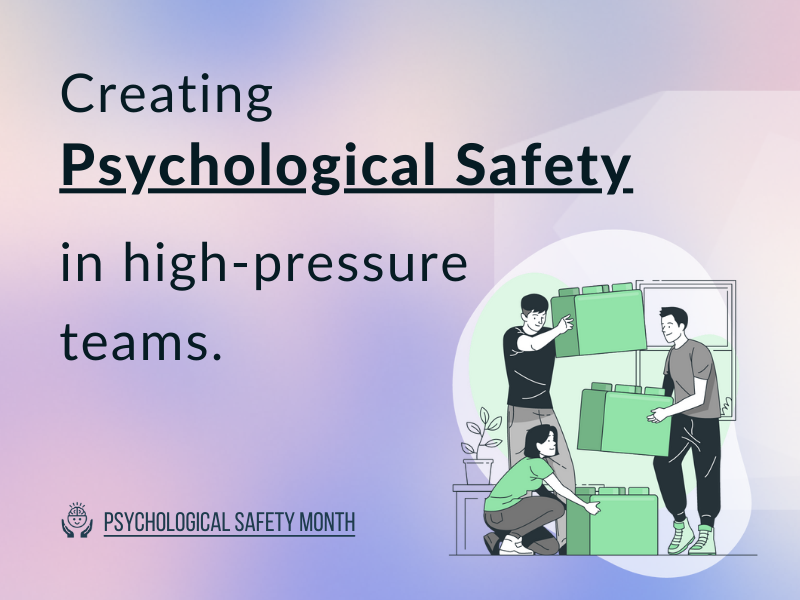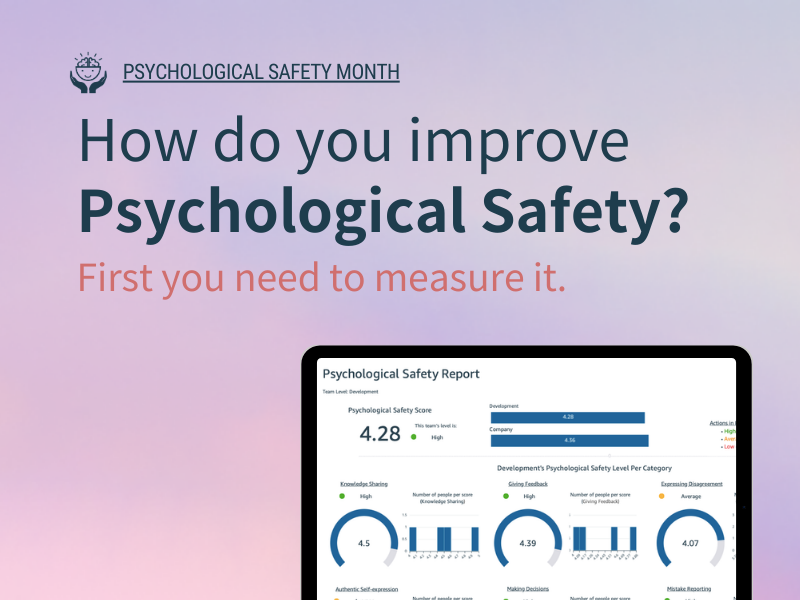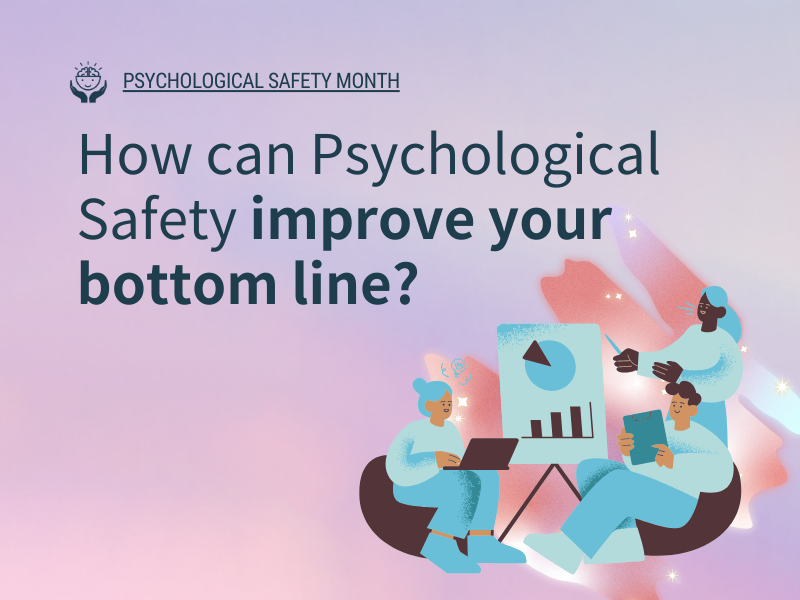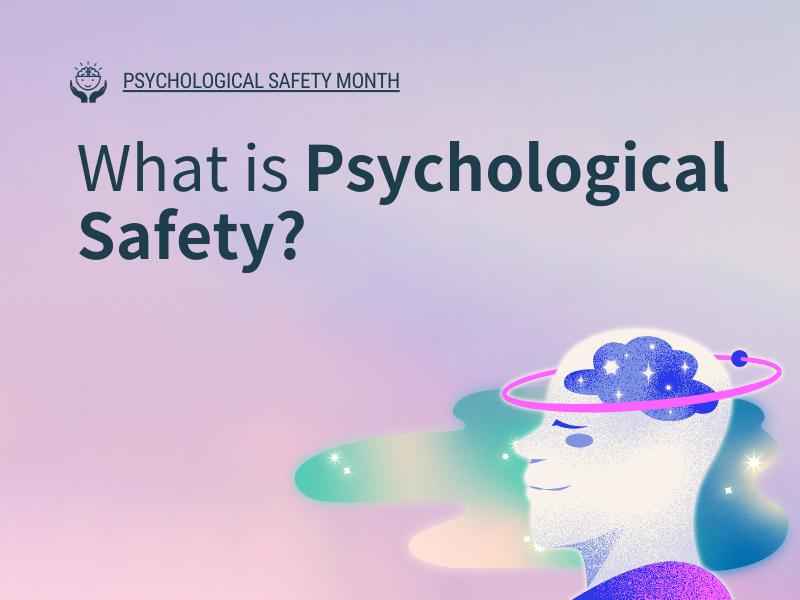Working in a high-pressure environment doesn’t have to mean living in constant fear of making mistakes. Cultivating Psychologically Safety in your teams allows you to take more risks, which might in turn lead to more rewards.
My first real experience in sales wasn’t quite Boiler Room or The Wolf of Wall Street, but I did join a high-performing, high-pressure team that expected me to perform—pretty much from the off. The hierarchy of top performers was clear, and I was at the bottom. Several of my team members had been top quarterly and yearly sales people, and it was obvious I wouldn’t be part of the team until I proved I belonged.
Outside of my team, the question from other sales people was always “How’s your quarter going?” Meaning: how much revenue have you brought in? It was a challenge more than a question.
In those early days, I kept my head down and worked hard. Not just to succeed, but to belong.
When I was still pretty new in the job, it was normal for me to be the last person in the office, working late and updating lead lists. My team had a manual way of saving important lists in our CRM, with no back up as everyone knew to make a copy before doing anything with the list. But one day I forgot, moved the list without copying, and then edited it for my work. Then I went home.
The next morning, my boss noticed straight away. The whole team was there, looking at each other and ready to pounce on the guilty party. I immediately realized my mistake—but I couldn’t speak up. The job was too important, and I knew that my mistake was too big to ignore. I probably wouldn’t be fired immediately, but the team would lose the tiny amount of trust and credibility I had been building with them. I knew what the right thing to do was, but I just couldn’t do it. (Incidentally, if any of my old teammates are reading this… sorry, it was totally me.)
Don’t look at me, it was like that when I got here…
The incident eventually blew over, and not long after that I made my first deal. I belonged.
My mistake, and my inability to speak up, stuck with me for a long time. In fact, I’ve never told the story until now. It’s really not like me to not own a mistake, and I’ve made plenty in my life. So why was that time different?
It wasn’t until years later that I got the answer—my team, and the wider business, lacked Psychological Safety. I was desperate to be accepted in my new team, and the stakes felt too big for me to speak up.
What exactly is Psychological Safety?
Psychological Safety, according to influential behavioral scientist Amy Edmondson, is defined as a shared belief held by members of a team that the team is safe for interpersonal risk-taking.

People make mistakes all the time, and while sales is generally considered a pretty high-pressure job, think about what it means to be a police officer, doctor, or an engineer at NASA, and the importance of Psychological Safety in teams becomes apparent. The higher the stakes, the more important Psychological Safety becomes.
Recognizing the Problem
A lack of Psychological Safety can be a hard problem to diagnose. In my case, the company culture had created toxic elements in a team full of friendly and well-meaning people. The other team members probably felt a higher degree of safety than I did as the new person. Still, judging a team’s Psychological Safety by its newest member is probably a good way to hold a high standard.
Here are a few signs that Psychological Safety may be lacking:
1. Mistakes get swept under the rug
Do problems in your organization tend to disappear like Jimmy Hoffa only to pop back up at inopportune times? How you treat people when they make mistakes will largely determine how (or if) mistakes are reported in the future.
2. Extrinsic motivation is prioritized over intrinsic motivation
It’s true that people like the carrot (although probably not as much as you think), and they fear the stick. But if your organization is heavily focused on extrinsic motivators rather than understanding what makes individuals tick, there is likely to be a lack of trust in your team.
3. Communication is one-way traffic
Do people talk to you or at you? And how do you communicate with others? Sometimes, we might feel we’re just passing something along, but if you don’t leave room for questions or comments then you are closing the door on discussion. Ask yourself, how communicative are your team meetings?
4. It feels “sink or swim”
Psychological Safety is built from the ground up, meaning that it starts with teams. However, how a company onboards, trains, and treats personal development all set the stage for building strong teams. Without good onboarding, people can feel thrown in at the deep end. That doesn’t feel great, and it certainly doesn’t build trust. Instead, it sets a precedent that you are well and truly alone, and it’s up to you to learn as you go.
Creating Psychological Safety
The problems above are not insurmountable, but they will require conscious effort and change. The following are some key areas to focus on:
1. Mistakes are opportunities to coach and build trust
Here’s what I tell new people that join my team: “At some point, you’re going to mess something up. It’s OK. Everyone goes through it. When you do, my job as your manager is to help you fix it. Part of my official job description is firefighter for the team. So when it happens, talk to me and we’ll work on it together.” My goal, which I think has been pretty successful, is to reduce the amount of fear associated with making mistakes, and also let them know I have their back. When they do make a mistake, we’ll figure out what went wrong and how to make sure it isn’t repeated.
2. Focus on Intrinsic Motivation
Give the carrot and stick a rest and use a tool like Attuned to prioritize intrinsic motivation. Extrinsic rewards like salary, promotions, etc. have very short-term effects, and Psychological Safety isn’t a short-term problem. Attuned helps you understand a person’s underlying values, which is much deeper than personality or behavior. These values and motivators are difficult or even impossible to identify through observation, and misunderstandings are often rampant during this process. At Attuned, we need just 15 minutes to set you on the right track.
3. Leave space for discussion
This makes a lot of managers nervous, because a lot of decisions are already made and can’t be changed. In that case, what good can come from discussion? Quite a bit, actually. Letting the team know that the decision is done, but still encouraging them to ask questions or air grievances can help them understand how and why a decision was made. There are a lot of pitfalls here—for example, saying things like “well, this wasn’t my decision, but we have to…” essentially tells your team that you have no power and can’t be relied on to support them. This won’t encourage Psychological Safety. Instead, own the decision but empathize with their concerns, ultimately aiming to use it to bring the team together rather than make it a complaining session. Still not sure? Try out delegation poker.
4. Level up your onboarding practices
While onboarding might seem completely within the realm of HR, the team manager has a significant impact on the new person’s experience. Having a great 1-on-1 is a good start, but even more important in the early days is to be a great coach. Even a very experienced person needs help in the first few weeks (or months), so it’s important that you help them along until they really start to find their feet.
Release the pressure
Being in a high-pressure environment doesn’t have to mean living in constant fear of making mistakes. In fact, it should be quite the opposite. When you feel psychologically safe, you can take more risks, which might in turn lead to more rewards.
At Attuned, we help companies evaluate and improve their Psychological Safety through our digital tools and workshops. So whether you’ve already seen the warning signs, or just want to make sure you are maintaining a healthy and motivating environment, take our quick, 5 minute product tour to learn how Attuned can help.






